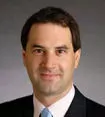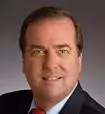This article was originally published in Risk Management magazine, March 2010.
All too often, the insurance claims process leaves policyholders feeling that that they have been taken to the cleaners. The process takes too long, is encumbered with round after round of questions and requests for documentation, and often results either in unfounded coverage defenses or lowballed settlement offers.
One possible way to preempt this frustration is to use your next renewal to customize the wording of your insurance policies so that they fit your business and work for you when claims arise. Don't get taken to the cleaners. Go to the tailor instead.
It might seem odd to hear a lawyer who represents policyholders in coverage litigation offer ideas for use in the placing process. But there are many examples over the years of policyholders adding or revising language to their policies that had a big impact on the way their coverage responds when a loss occurs.
How To Improve Your Policy
Insurance policies typically are so hard to read that customers have been conditioned to avoid thinking critically about how their wording can be improved. The pain from trying to understand how a policy's pieces come together is akin to the shock administered to a lab mouse every time it goes for some cheese. After a few jolts, insurance buyers tend to skim over many policy provisions, make sure the limits and price are right, and move on to the next task for the day.
But it usually pays off to spend a day or two reading the entire policy carefully and thinking of ways to make the policy do exactly what you want it to do. Ask yourself "what is my dream coverage"? Then explore ways to work language providing that coverage into your policy. Our firm was recently involved in a case with a client whose property policy had a complicated valuation provision in which the coverage provided was defined to be "the lesser of" X, Y or Z, given the circumstance of the loss. Upon renewal, the policyholder asked the broker, "Why can't the minimum payout always be X?" Good question. The broker changed the wording to say that losses are valued simply as X and the underwriter accepted the change. When a claim arose, the insurance company's claims handler instinctively began asking questions about Y and Z, but we quickly pointed to the language in the policy and avoided having to answer those questions. We also made sure that the client got paid X, which was more than Y or Z.
When To Improve Your Policy
Changes to policy wording are most likely to be accepted during soft markets like the one that has existed over the past several years. Although in theory, underwriters price policies based on the specific risks being transferred via the actual policy, in practice, due to competition from other insurance companies, lack of effort or both, it is usually the case that requested changes to policy wording usually do not result in corresponding changes to premium. Essentially, the underwriter agrees to "throw in" the broadened coverage in order to keep the policyholder's business.
Now here is the best part. One might expect that coverage that is added for free in a soft market either gets taken out or increases the premium when markets eventually harden. But because underwriters do not always read every word of every policy that comes up for renewal - it seems that they, too, dislike the taste of electrified cheese - improvements added during soft markets often remain in policies for years even after markets firm up.
Overall, a day or two spent carefully going over your policy wording with your broker, insurance consultant or lawyer can pay big dividends when claims arise - not only in avoiding frustration in the claims process, but also in terms of the size of the ultimate payment of your claim. It is true that a stitch in time saves nine, so take your policy to the tailor. Chances are, you will look like a million bucks in bespoke wordings.
Robert M. Horkovich and Marshall Gilinsky are shareholders in the New York office of Anderson Kill & Olick, P.C. Horkovich, a trial lawyer with substantial experience in trying complex insurance coverage actions on behalf of corporate policyholders, has obtained over $5 billion in settlements and judgments from insurance companies for his clients over the past decade. Gilinsky's practice is focused on property insurance, commercial general liability insurance, directors' and officers' insurance, captive insurance and reinsurance issues.
About Anderson Kill & Olick, P.C.
Anderson Kill practices law in the areas of Insurance Recovery, Anti-Counterfeiting, Antitrust, Bankruptcy, Commercial Litigation, Corporate & Securities, Employment & Labor Law, Real Estate & Construction, Tax, and Trusts & Estates. Best-known for its work in insurance recovery, the firm represents policyholders only in insurance coverage disputes, with no ties to insurance companies and no conflicts of interest. Clients include Fortune 1000 companies, small and medium-sized businesses, governmental entities, and nonprofits as well as personal estates. Based in New York City, the firm also has offices in Greenwich, CT, Newark, NJ, Philadelphia, PA, Ventura, CA and Washington, DC. For companies seeking to do business internationally, Anderson Kill, through its membership in Interleges, a consortium of similar law firms in some 20 countries, assures the same high quality of service throughout the world that it provides itself here in the United States.
Anderson Kill represents policyholders only in insurance coverage disputes, with no ties to insurance companies, no conflicts of interest, and no compromises in it's devotion to policyholder interests alone.
The information appearing in this article does not constitute legal advice or opinion. Such advice and opinion are provided by the firm only upon engagement with respect to specific factual situations

